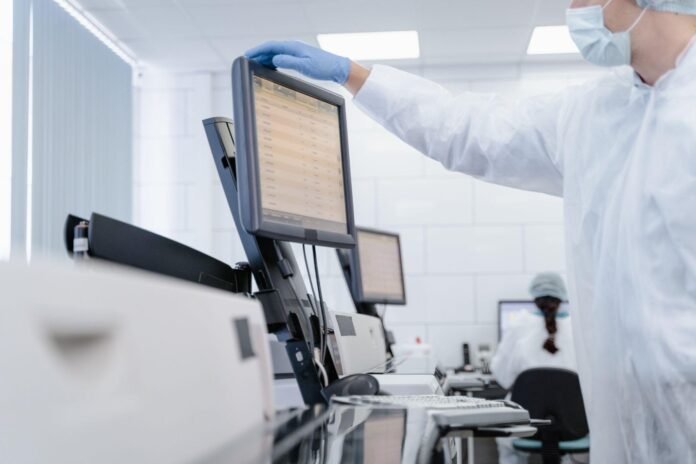In the fast-paced world of healthcare, where every minute matters, time is a precious resource. With an ever-increasing volume of patient data and documentation requirements, healthcare professionals are often overwhelmed with administrative tasks that take away from their primary focus – providing quality care to patients. This is where AI comes in as a hidden helper, taking over tedious documentation tasks and freeing up clinician time for patients.
Freeing up Clinician Time with AI Data Extraction
The use of AI in healthcare data entry has been gaining momentum in recent years, and for good reason. By using intelligent algorithms to automatically extract data from patient records and other sources, AI can significantly reduce the amount of time clinicians spend on administrative tasks. This not only improves their overall efficiency but also allows them to focus on what they do best – providing care to patients.
AI data automation and extraction can be applied across various types of documentation, from patient charts and notes to lab results and insurance forms. This technology is capable of identifying and extracting relevant information such as demographics, medical history, diagnostic codes, and medication lists with high accuracy, reducing the need for manual data entry. As a result, clinicians can spend more time with patients and less time staring at screens.
Improving Diagnoses by Eliminating Transcription Errors
Apart from freeing up clinician time, AI data extraction also leads to improved diagnosis. With traditional manual data entry methods, there is always room for human error. Even the most diligent healthcare professionals can make transcription mistakes, especially when under time constraints. These errors can have significant consequences, including delayed or incorrect diagnoses, which in turn can impact patient outcomes.
AI-powered data extraction eliminates transcription errors by automating the process of capturing and recording patient information. With advanced natural language processing (NLP) capabilities, AI can accurately interpret and extract data from unstructured text documents at a speed that surpasses human capabilities. This not only improves the accuracy of patient data but also provides clinicians with a complete and up-to-date view of a patient’s medical history, allowing for more informed diagnoses and personalized treatment plans.
Protecting Privacy: How AI Handles Sensitive Patient Information Securely
With the growing concerns over data privacy and security, it is natural to question how AI handles sensitive patient information. The good news is that AI-powered data extraction is designed with privacy and security in mind.
One of the key features of AI technology is its ability to learn from data without direct human involvement. This means that AI algorithms do not have access to personally identifiable information (PII) unless it is required for a specific task. Furthermore, advanced encryption techniques are used to secure the data during transmission and storage, ensuring that patient information remains confidential.
Faster Access to Complete Patient Histories for Better Outcomes
One of the biggest advantages of AI in healthcare is its ability to analyze large volumes of data at a speed that humans simply cannot match. This not only frees up clinician time but also provides faster access to complete patient histories. By automatically extracting and organizing data from various sources, AI can create a comprehensive patient profile that includes information from past visits, test results, and other medical records. This complete view of a patient’s medical history allows for more accurate diagnoses and personalized treatment plans.
Additionally, AI can also help identify patterns and trends in patient data that may not be apparent to the human eye. By analyzing large datasets, AI can detect correlations and associations between various factors, which can ultimately lead to more effective treatments and improved patient outcomes.
The Bright Future of AI in Healthcare Delivery
The use of AI in healthcare data entry automation is just the beginning. As technology continues to evolve, we can expect to see even more transformative applications of AI in healthcare delivery. From predictive analytics for disease prevention to virtual assistants for patient care, the possibilities are endless.
Moreover, as AI technology continues to mature, it will become more accessible and cost-effective for healthcare organizations of all sizes. This means that even smaller clinics and practices can benefit from the time-saving and accuracy-improving capabilities of AI data extraction.
Summing Up
In conclusion, AI is transforming healthcare data entry by freeing up clinician time, improving diagnoses, protecting privacy, and providing faster access to complete patient histories. With its potential for even more advanced applications in the future, there is no doubt that AI will play a significant role in revolutionizing healthcare delivery and ultimately improving patient outcomes. So let’s embrace this hidden helper and work towards a brighter future for healthcare with AI by our side.
